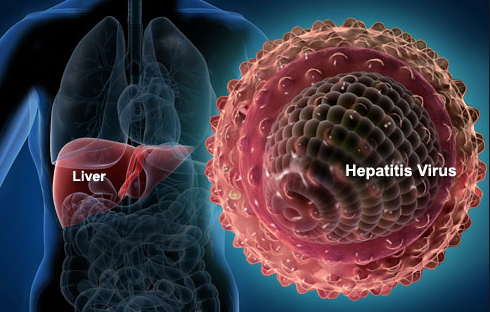Elbasvir/Grazoprevir (Zepatier) for the treatment of chronic hepatitis C virus (HCV) genotypes 1 and 4 infections

Last Updated on January 30, 2016 by Joseph Gut – thasso
 January 30, 2016 – Hepatitis C is a viral disease that causes inflammation of the liver that can lead to diminished liver function or liver failure. Most people infected with HCV have no symptoms of the disease until liver damage becomes apparent, which may take several years. Some people with chronic HCV infection develop cirrhosis over many years, which can lead to complications such as bleeding, jaundice (yellowish eyes or skin), fluid accumulation in the abdomen, infections or liver cancer. According to the Centers for Disease Control and Prevention, approximately 3 million Americans are infected with HCV, of which genotype 1 is the most common and genotype 4 is one of the least common.
January 30, 2016 – Hepatitis C is a viral disease that causes inflammation of the liver that can lead to diminished liver function or liver failure. Most people infected with HCV have no symptoms of the disease until liver damage becomes apparent, which may take several years. Some people with chronic HCV infection develop cirrhosis over many years, which can lead to complications such as bleeding, jaundice (yellowish eyes or skin), fluid accumulation in the abdomen, infections or liver cancer. According to the Centers for Disease Control and Prevention, approximately 3 million Americans are infected with HCV, of which genotype 1 is the most common and genotype 4 is one of the least common.
With the approval on January 28, 2016, of Elbasvir/Grazoprevir (Zepatier), the American Food and Drug Administration (FDA) has just added an additional therapy option to the armamentarium of weapons for the treatment of chronic hepatitis C virus (HCV) genotypes 1 and 4 infections in adult patients. In fact, Elbasvir/Grazoprevir (Zepatier) represents another oral treatment option for patients with genotypes 1 and 4 HCV infections without requiring use of interferon. Elbasvir is a highly potent and selective inhibitor of the hepatitis C virus NS5a replication complex, while grazoprevir is a second generation hepatitis C virus protease inhibitor acting at the NS3/4a protease targets.
The safety and efficacy of Elbasvir/Grazoprevir (Zepatier), which may be given with or without ribavirin, was evaluated in clinical trials of 1,373 participants with chronic HCV genotype 1 or 4 infections with and without cirrhosis. The participants received Elbasvir/Grazoprevir (Zepatier) with or without ribavirin once daily for 12 or 16 weeks. The studies were designed to measure whether a participant’s hepatitis C virus was no longer detected in the blood 12 weeks after finishing treatment (sustained virologic response or SVR), suggesting a participant’s infection had been cured.
The overall SVR rates ranged from 94-97 percent in genotype 1-infected subjects and from 97-100 percent in genotype 4-infected subjects across trials for the approved treatment regimens. In order to maximize SVR rates for patients, the product label provides recommendations regarding length of treatment with or without ribavirin specifically tailored to the characteristics of the patient and their virus. It is recommended that healthcare professionals screen genotype 1a-infected patients for certain viral genetic variations prior to starting treatment with Zepatier to determine dosage regimen and duration.
Elbasvir/Grazoprevir (Zepatier) does not come without adverse drug effects. The most common side effects of Elbasvir/Grazoprevir (Zepatier) without ribavirin were fatigue, headache and nausea. The most common side effects of Elbasvir/Grazoprevir (Zepatier) with ribavirin were anemia and headache. Elbasvir/Grazoprevir (Zepatier) carries a warning alerting patients and health care providers that elevations of liver enzymes (indicative for liver toxicity) to greater than five times the upper limit of normal occurred in approximately 1 percent of clinical trial participants, generally at or after treatment week eight. Liver-related blood tests should be performed prior to starting therapy and at certain times during treatment. Elbasvir/Grazoprevir (Zepatier) should not be given to patients with moderate or severe liver impairment.


0 Comments on “Elbasvir/Grazoprevir (Zepatier) for the treatment of chronic hepatitis C virus (HCV) genotypes 1 and 4 infections”